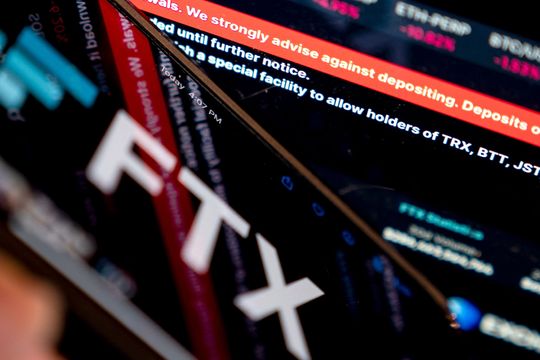Brett Harrison, former head of the U.S. arm of FTX, distanced himself from the crypto exchange co-founded by Sam Bankman-Fried, which filed for bankruptcy back in November.
Harrison, who resigned as FTX US’s president in September, wrote about his experience with the company in a 49-part Twitter thread published Tuesday. Harrison had rarely made any public comments about FTX and had gone mostly silent when the digital-asset company flamed out this fall.
Harrison said he wasn’t aware of and didn’t participate in the FTX “criminal scheme,” which he says was overseen by Bankman-Fried, former chief executive at FTX, along with the disgraced founder’s inner circle.
Bankman-Fried is charged with looting billions of dollars in customer funds at FTX to support risky bets at affiliated hedge fund Alameda Research, in what prosecutors argue could be one of the most brazen fraud cases in recent years. He has pleaded not guilty on all eight counts he’s facing from the Southern District of New York and has been under house arrest in his parents’ California home on a $250 million bond.
Before his arrest last month, Bankman-Fried had said publicly that he never intended to defraud anyone.
Harrison didn’t mention in his latest tweets whether he is cooperating with any prosecutors or regulators.
Unlike other executives at FTX, Harrison had traditional finance pedigree, having worked at a number of financial shops. He was once the head of trading systems technology at Jane Street and led a tech team in an area focused on exchange-traded funds at Citadel Securities.
Harrison said he stepped down last year from FTX.US, as his relationship with Bankman-Fried soured, after months of disputes over management practices. Harrison said he called for a responsible hiring policy, transparent communication between Bankman-Fried and FTX US leadership and recruitment of more experienced officers within the platform’s executive ranks.
Harrison said he wrote a formal complaint about FTX’s largest organizational problems in April 2022, but feared being fired.
“I raised concerns at the company believing that the management and organizational issues I saw were typical of growing start-ups, and that my role, as an experienced financial services executive, was to correct them and unlock the next stage of the company’s growth,” Harrison wrote.
“I never could have guessed that underlying these kinds of issues—which I’d seen at other more mature firms in my career and believed not to be fatal to business success—was multi-billion-dollar fraud,” Harrison wrote.
According to Harrison, he got to know Bankman-Fried when they both worked for Jane Street, and had an impression of the latter as a “conscientious junior trader” and a “a sensitive and intellectually curious person who cared about animals.” However, Harrison said he saw in the early conflict at FTX with Bankman-Fried “his total insecurity and intransigence when his decisions were questioned, his spitefulness, and the volatility of his temperament.”
“I realized he wasn’t who I remembered,” Harrison wrote.
Prosecutors make the case that FTX was a fraud from the very beginning, with Bankman-Fried allegedly funneling customer deposits into Alameda. Bankman-Fried treated the money as his personal piggy bank, prosecutors have said, using it also to finance a lavish lifestyle for him and a coterie of friends and executives.
Bankman-Fried didn’t respond to a request seeking comment for this article.
In a comment to Bloomberg about Harrison’s statements via Twitter, Bankman-Fried is quoted as saying that “Brett was a great developer and deeply understood FTX’s product.”
“While I strongly disagree with much of what he said, I have no desire to get into a public argument with him, nor do I feel like it’s my place to litigate his job performance in public, unless he were to authorize me to do so,” Bankman-Fried was quoted saying to Bloomberg.

